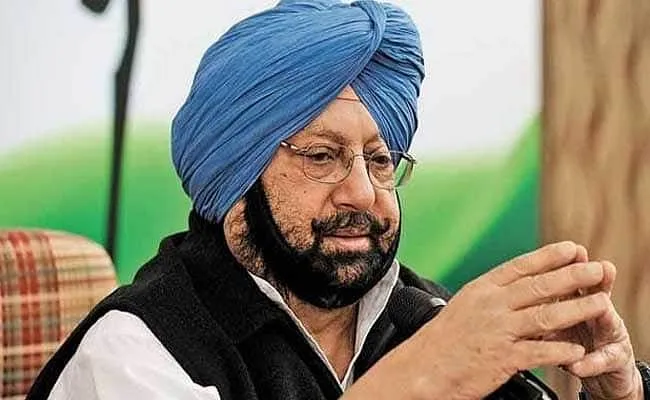National Conference vice president Omar Abdullah who has the experience of dealing with Congress as Chief Minister of united Jammu and Kashmir, as it existed during his tenure, aptly remarked, “ I guess it’s too much to expect the Congress to take the fight to the BJP when its state leaders are too busy fighting amongst themselves.” The reference was too obvious – political developments in Punjab leading to the resignation of Chief Minister Capt. Amarinder Singh owing to the calls for his removal by nearly 40 legislators of the party.
He made another observation, the significance of which would be known in 2024 general elections. “Ordinarily I wouldn’t give a toss about the fratricide in the Congress party – their party, their business. However what the Congress does has a direct fallout for every political party outside the NDA orbit because almost 200 Lok Sabha seats see a direct BJP-Congress fight”
Some within Congress, and other parties, may question Omar Abdullah’s authority to speak on the national politics. They may be right but Omar, whose family right from his grandfather Sheikh Mohammad Abdullah’s days to his father Farooq Abdullah and to him, has dealt with Congress since 1940s, has spoken the home truth. His personal experience, even if we forget how Congress treated his grandfather and father, enables him to speak on this crucial issue. Punjab is not an isolated case where a CM has been dumped less than five months before the Assembly elections due in February-March next year. The party has dealt with Kashmir in the most casual manner and created situations where things came to a non-return point. Some of the actions of the party created groundswell of support for the insurgency that later graduated to armed militancy.
On July 20, 2014, when the J&K Assembly elections were due in next three to four months, it snapped ties with its ally National Conference, announcing that it would go to the polls on its own, but stay in the government until the elections are over. This was despite the fact that Omar had held discussions with Congress president Sonia Gandhi on the subject 10 days before this announcement was made. The two had agreed that the NC and Congress would go to polls on their own. Instead, Congress made it look as if it was walking away from the alliance, and the paradox was that it did not want to leave the government. It was strange departure from the alliance. That not only had the political but also had geo-strategic ramifications.
Jammu and Kashmir was as sensitive place then as it is today. Its sensitivity level is unchanged. The sensitivity of the place puts extra responsibilities for the political parties, especially the ones that operate at the national level. The national parties have a role to keep the things stable in such places. There always is a greater need to understand the place and the people and that comes by the intense and intimate interaction not by the announcements which add to the political uncertainties.
Congress failed in playing the role of a stabilizing political force. It created a situation where the NC-Congress coalition government was made to look like a lame duck one. This inflicted serious injuries to the politics and governance and the office of Chief Minister. Then came the devastating September 2014 floods and the government was found in complete disarray where NC and Congress ministers were busy in building their image, unaware that the people had given them a noisy burial in the gushing waters of Jhelum and Chenab. The results of the 2014 Assembly polls proved that NC won 15 and Congress ended with 12 in its kitty, and a situation arose where the North Pole and South Pole ( It is yet to be determined who – PDP or BJP- stood on which pole) joined hands only to part ways with a bang in three years’ time after coming to power in March 2015.
And, in 2010 street protests in which 120 people died, Congress leaders were active in destabilizing the state government. Not that Omar was running the government the way it should have been run ideally, but if he had to be changed, it could have been done through the process of consultations. In any case, Omar was flying in and out of Srinagar to Delhi on a regular basis that time. But the inner forces were made to work overtime to damage the image of the government. Omar’s fault that he did not picked up signals and allowed his government to suffer the irreparable losses that it did in the successive years in the government till January 2015, when he finally put in his papers after returning from London.
This also is a matter of recorded history that the then Home Minister P Chidambaram asked Omar Abdullah to move out of ( his bungalow), and who has forgotten that how the then Union Home Secretary announced lifting of curfew on the eve of Eid-ul-Milad-ul Nabi while a group of ministers was in session deliberating on the issue at the official residence of Chief Minister.
The lesson that Omar’s remarks in excellent English – speaking and writing good English is the best skill known to him and especially when it comes to J&K and international affairs – is that the national parties should not make an ugly spectacle of themselves, because that has far reached consequences.
Even when the current crisis in Punjab has nothing to do with J&K, but Kashmir would be affected, as many who have long association with the party or those who have sacrificed a lot for it, feel that the party is drifting. If it cannot steer things in Punjab, Madhya Pradesh, how could it draw a plan for a hyper-sensitive place like J&K where so many fault lines crisscross. And when it comes to Kashmir, things never remain confined to the lines on the map.







